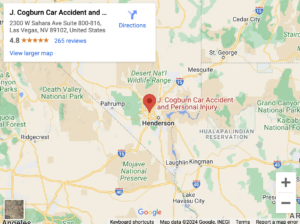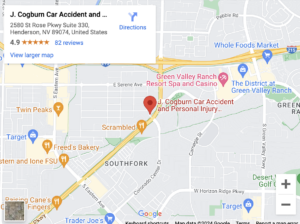
A duty of care is a legal obligation requiring you to act in a certain way, as specified by law, custom, or morality. The existence of a duty of care is one of the foundational principles of personal injury claims based on the tort of negligence. When this duty is breached, the victim may be able to recover damages for any injuries resulting from the breach.
Understanding what constitutes a breach of the duty of care first begins with understanding when the duty exists. Learn all the details below about the duty of care and what causes a breach of duty.
How a Breach of Duty Affects Personal Injury Claims
Personal injury claims based on negligence require that four elements be proven. These elements include a duty of care, breach of duty, causation, and damages. The victim or plaintiff must prove all four elements in order to be successful with their claim.
Duty of Care
Before determining whether a breach of duty occurred, the plaintiff must first prove that a duty of care existed. The duty of care is sometimes specified by law. At other times, the duty of care owed to others is that of a reasonable person in a similar situation.
For instance, when you drive your vehicle on the road in Nevada, you owe other drivers a duty to operate your vehicle safely and responsibly. This duty includes following all traffic laws and refraining from dangerous or irresponsible behavior that may result in a car accident.
The specific duty of care owed to others can depend on your relationship with the other person. For instance, regarding premises liability, you owe others who are invited onto your property a higher level of care than those who are trespassing.
Breach of Duty
Once you have established that a duty of care existed, you must then prove that the defendant breached that duty. In other words, the defendant, either by act or omission, failed to behave as a reasonable person would in a similar situation.
Consider the car accident example mentioned earlier. A driver owes other drivers on the road a duty not to text while driving. By texting while driving their vehicle, a driver has breached their duty to others on the road.
There are several ways a plaintiff may prove that the defendant breached their duty. Some common ways include:
- Eyewitness testimony
- Photos from the scene
- Video evidence, such as a dashcam or surveillance camera
- Expert opinions, such as crash scene reconstructionists
- Testimony from the parties themselves
Once a breach of duty has been proven, two other elements must be proven for a negligence claim to be successful.
Causation
After a breach occurs, the plaintiff must prove that the breach caused their injuries. Causation includes both direct causation and proximate causation.
Direct causation means that the injury was caused directly by the breach of duty. Put another way, the accident or injury would not have occurred were it not for the defendant’s conduct.
Proximate causation means that the injuries sustained were a foreseeable consequence of the behavior. For instance, getting into a car accident is a foreseeable consequence of texting while driving. Likewise, a broken bone is a foreseeable injury that may result from a crash.
Damages
The final element of a negligence claim is damages. Damages include economic and non-economic losses sustained due to the accident. Damages include the following:
- Medical bills
- Lost wages
- Pain and suffering
- Mental anguish
- Loss of quality of life
An experienced personal injury attorney can help assess your damages and determine the value of your claim.
What to Do if Someone Has Breached Their Duty to You
A breach of duty may occur in many types of personal injury cases, including truck accidents, slip and fall accidents, and wrongful death actions.
If you have been injured because someone else breached their duty to you, you need an experienced personal injury attorney who can help you get the compensation you are owed. Contact a personal injury attorney from Cogburn Davidson Car Accident & Personal Injury Lawyers today at 702-996-4786 to let them help you with your claim.


